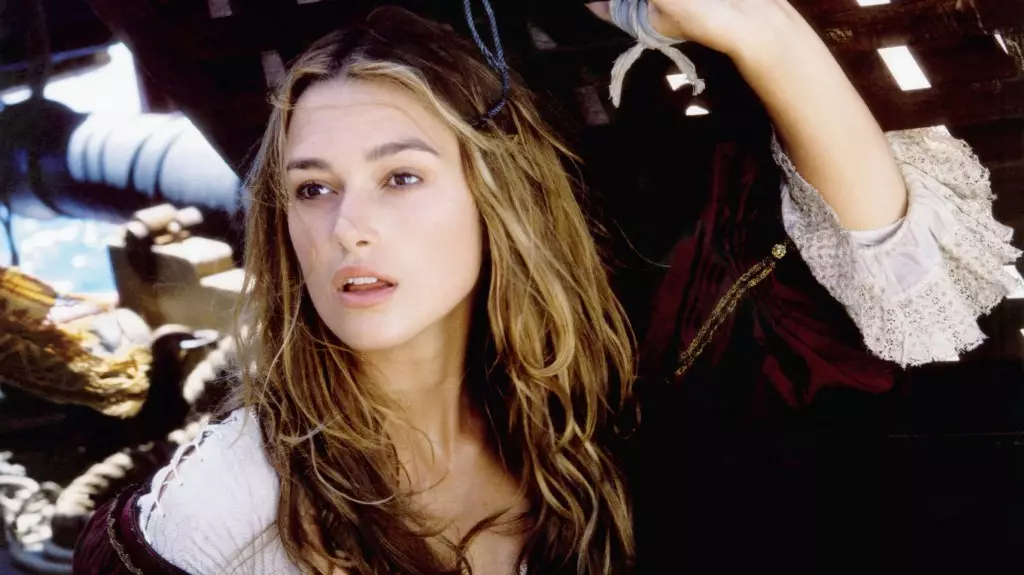From her early days as a youthful star in the “Pirates of the Caribbean” franchise, Keira Knightley has become an emblem of Hollywood’s complex relationship with fame. Debuting at just 17, Knightley quickly catapulted into superstardom, yet the very films that elevated her career also complicated her public image. In a recent interview, Knightley reflected on her experiences in the film industry with both nostalgia and frustration, revealing that her time with blockbuster franchises has led her to reconsider her future choices in acting.
Despite the immense success of the “Pirates of the Caribbean” series, Knightley expressed a resolute decision to abandon the world of franchise films. She described this phase as a double-edged sword, where the overwhelming success of these blockbusters brought her both acclaim and scrutiny. Although they provided her with opportunities to take on critically acclaimed roles, such as those in “Pride & Prejudice” and “The Imitation Game,” they also subjected her to harsh public judgment during her formative years in the industry. The result is a complicated legacy that saw her rise and subsequent public critique intertwined.
Knightley’s candid remarks about the burdens of franchise filmmaking shed light on broader industry practices that can overwhelm actors. In her interview with The Times, she noted that the extensive hours dedicated to such projects, often spanning several years, are mentally and physically taxing. The lack of control over filming schedules, locations, and the nature of the creative process only exacerbates this strain. Knightley pointedly described the rigorous demands of these large productions, making it clear that she is no longer willing to relinquish her personal autonomy in favor of box office success.
The weight of such experiences has led Knightley to seek alternative projects that allow her to redefine her relationship with acting and the public eye. By stepping away from the franchise-driven model that once dominated her career, she hopes to focus on more meaningful creative endeavors. This quest for autonomy aligns with a broader movement among contemporary actors seeking more control over the type of roles they inhabit.
Beyond the pressures of high-octane film sets, Knightley’s reflections also touch on the emotional toll that fame can extract, particularly from young women in Hollywood. This topic is especially relevant today as it intersects with growing conversations about mental health and body image. Knightley shared her experience dealing with tabloid scrutiny regarding her weight, which often left her grappling with unwelcoming public narratives.
Fascinatingly, she noted a “complete delete” from some periods of her life, suggesting a coping mechanism to deal with the specter of public shame. By acknowledging these experiences, Knightley reveals the often-ignored psychological impact of fame on young artists, emphasizing the importance of addressing such issues in the industry. Her journey exemplifies the necessity of fostering better mental health resources within Hollywood, particularly for emerging talent.
As Knightley embarks on a new chapter in her career, her decision to step back from blockbuster franchises and pivotal roles reflects a profound shift in her priorities. Following the birth of her children with husband James Righton, she now seeks a balance between family life and her professional aspirations. This transition has evidently motivated her to pursue projects such as Netflix’s upcoming series “Black Doves,” where she engages in thrilling narratives without the weight of past franchises.
Keira Knightley stands at a crossroads in her career—a place where she can redefine what success means to her. By moving away from the franchise world, she not only liberates herself from the chains of past expectations but also paves the way for a more thoughtful approach to her craft. As she prepares for her role in “Black Doves,” Knightley exemplifies the power of personal agency in an industry often dominated by divergent pressures. Her journey serves as an inspiration to many, advocating for both personal well-being and creative freedom in a demanding landscape.


Leave a Reply